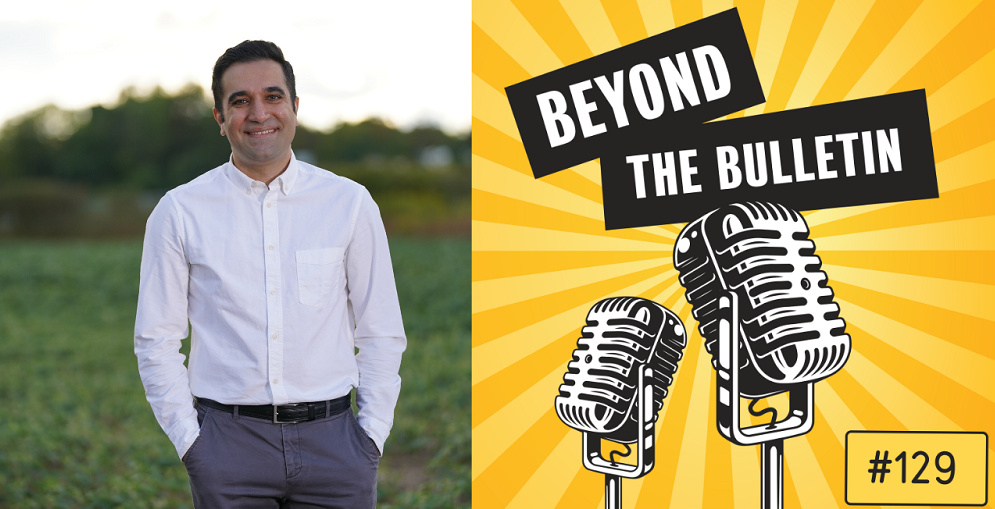
Edris Madadian is a Postdoctoral Fellow in the Department of Chemical Engineering. Madadian, a leading scholar in biofuel, came to the University of Waterloo in 2020 as an AMTD postdoctoral scholar. The AMTD Waterloo Global Talent Postdoctoral Fellowship is funded by alumnus Calvin Choi to support the development of outstanding international academics whose research will have a significant impact on a global level.
Ground-breaking research
Madadian is wrapping up work on his AMTD Fellowship and was featured on episode 129 of Beyond the Bulletin to discuss his project. His research examines the impact, behaviour, and erratic characteristics of pharmaceutical and personal care products on water resources. Madadian contends that emerging contaminants in our environment are a public health and safety concern. He uses the term to describe pyrolytic product composition of municipal sewage sludge containing pharmaceuticals and personal care products. (PPCPs) Little is known about their impact on the environment although their presence is ubiquitous.
PPCPs are designed to be biologically active and have unknown effects on delicate water and land ecosystems which can lead to lasting detrimental effects on food chains and agriculture. The study investigates the effect of thermochemical pathways in cleansing the environment of these contaminants.
Impact of research
Madadian hopes that the impacts of his research will be twofold,
Firstly, to raise awareness and educate the public about the lethal impact of emerging contaminants on human and wildlife endocrine systems; and secondly, to characterize PPCPs and propose a treatment pathway that not only degrade the contaminants but also provide some spin-off opportunities to generate value-added products such as biochar and bio-oil.
Madadian started his fellowship in the middle of the COVID-19 pandemic and worked under the supervision of Professor David Simakov in the Department of Chemical Engineering. Madadian reflected on the support he received,
Thanks to the great leadership in the Department of Chemical Engineering (ChE), our lab was certified to be operated during the lockdown. I am also thankful to my supervisor Professor David Simakov who actively encouraged me to explore different aspects of the research project. One of the aspects of working in ChE was working with Charles Dal Castel, the Manager of Analytical Lab Services in the Department. Charles was always open to help with the experiments and provided excellent first-hand training sessions.
Madadian’s research is an example of how the discipline of chemical engineering is uniquely poised to provide solutions in the areas of sustainability, environmental remediation and renewable energy for the betterment of society. The outcome of his research will have global reach and impact.